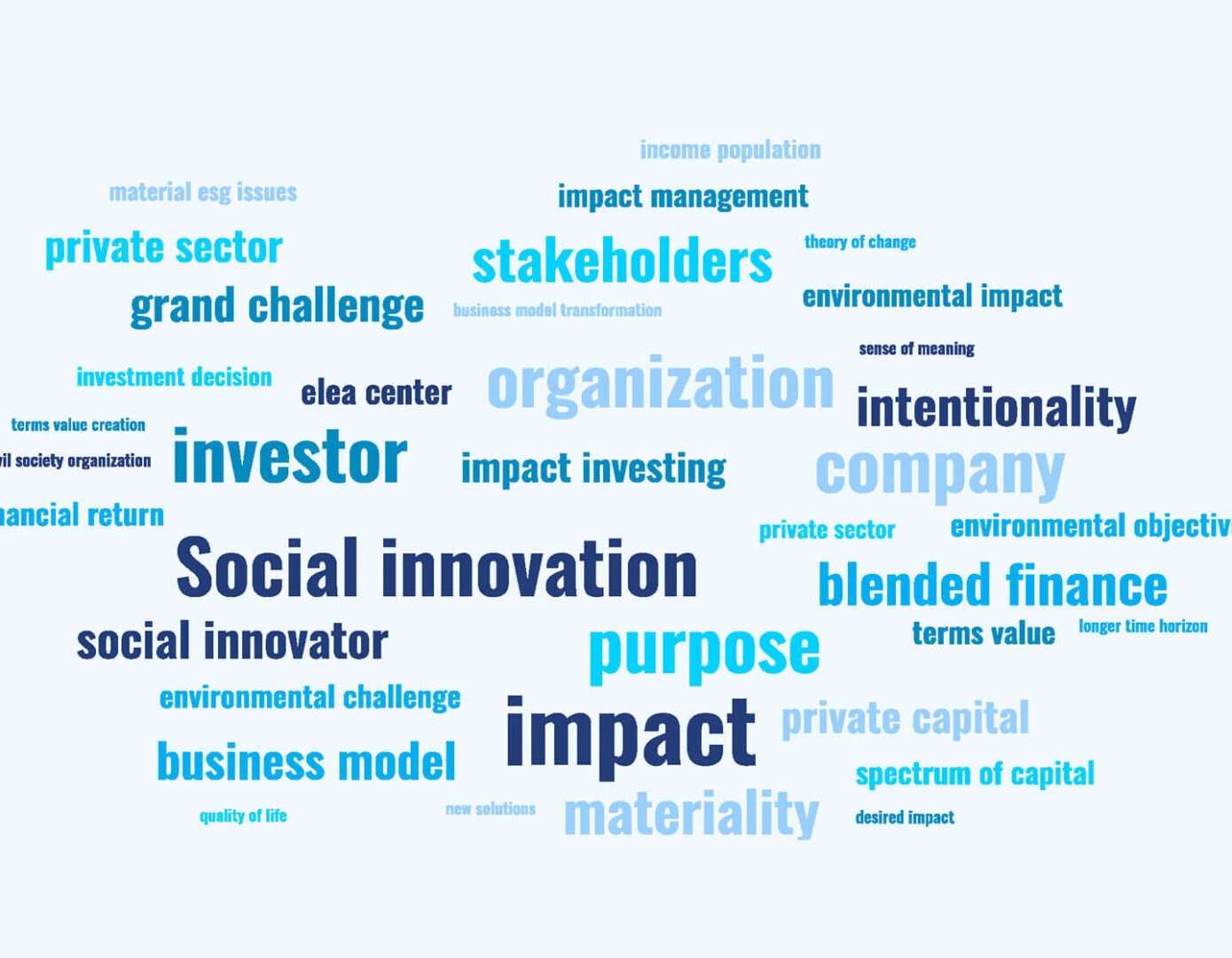
Social innovation: Mobilizing private capital for impact
We are at an important inflection point in the evolution of the private sector’s role in stimulating social innovation. While the field of social innovation has shown tremendous growth over the past decade, many actors within the spectrum of capital are still sitting on the sidelines – interested in impact, but not yet allocating enough resources or investments.
Much of the discussion over the past decade has focused on understanding and measuring impact, and rightfully so. But a key challenge that has not received its fair due in the conversation, in our view, is the concept of impact management.
We believe now is the time for impact management to take center stage. Asset owners such as investors, banks, entrepreneurs, corporates, or family offices articulate and realize their impact objectives through impact management. They identify what problems they want to solve, who they want to reach, where they want to invest, and what risks they want to take. Impact management requires asset owners to consider how they want to prototype, onboard, and create a pipeline of social innovation.
At IMD’s elea Center for Social Innovation, in line with IMD’s overall vision, we challenge what is and inspire what could be through social innovation.
Our activities are based on identifying and exploring the opportunities available to social innovators throughout the spectrum of capital, from profit-seeking impact enterprises to new uses of philanthropic capital. Ultimately, we aim to help align different actors around purpose and impact.
In this white paper, we share our view on why there is a need for social innovations to urgently mobilize private capital for impact, offer our perspective on how social innovation is distinctive, outline the range of opportunities available to private actors, and introduce a framework that we believe can help corporations, social innovators, and financial capital providers diagnose their capabilities to contribute to and navigate this new landscape.
Research Information & Knowledge Hub for additional information on IMD publications
- Ready, set, go! A roadmap for sustainable business transformation
- Social innovation: Mobilizing private capital for impact
- Ready, set, go! A roadmap for sustainable business transformation
- Social innovation: Mobilizing private capital for impact
Research Information & Knowledge Hub for additional information on IMD publications
Research Information & Knowledge Hub for additional information on IMD publications
The A case in this two-part series outlines the challenges Isabella Phoenix faced in designing a global sustainability program for HP's vast network of channel partners in just 12 weeks with only one team member and limited resources. The initiati...
The B case outlines how, by early 2025, Isabella Phoenix's initial vision for HP's Amplify Impact sustainability program had grown into a global initiative involving 4,800 partners in 48 countries. The program surpassed its goals, enrolling 59 of ...
Existing research on social entrepreneurship has tended to focus on its favorable outcomes and positive societal impacts. While we acknowledge and commend this optimistic perspective, we contend that the lack of robust and systematic attention giv...

In today’s boardrooms, two themes dominate: rapid technological advancement and the growing urgency of environmental accountability. But a new source of competitive advantage is emerging, not from A.I. or sustainability alone, but from the deliber...
in I by IMD
Research Information & Knowledge Hub for additional information on IMD publications
Research Information & Knowledge Hub for additional information on IMD publications
Research Information & Knowledge Hub for additional information on IMD publications
in I by IMD
Research Information & Knowledge Hub for additional information on IMD publications
Case reference: IMD-2681 ©2025
Research Information & Knowledge Hub for additional information on IMD publications
Case reference: IMD-2695 ©2025
Research Information & Knowledge Hub for additional information on IMD publications
Research Information & Knowledge Hub for additional information on IMD publications
in Small Business Economics 8 July 2025, ePub before print, https://doi.org/10.1007/s11187-025-01094-3
Research Information & Knowledge Hub for additional information on IMD publications
Research Information & Knowledge Hub for additional information on IMD publications
Research Information & Knowledge Hub for additional information on IMD publications








